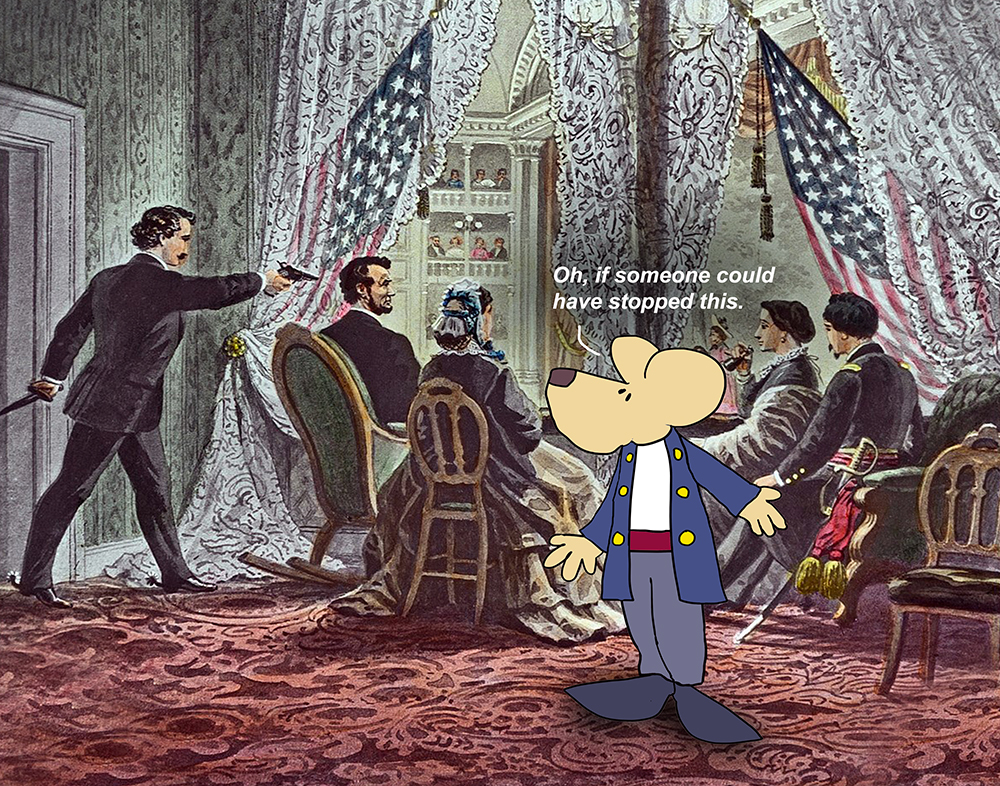The attack was supposed to be threefold. The plan for this night, April 14, 1865, involved the murder of three people. The president, the vice president, and the secretary of state. It didn’t go quite as planned, yet, it was terrible in every way.
We know that on this date, John Wilkes Booth made his way to the Ford Theatre, where he crept inside and fatally shot Abraham Lincoln in the back of the head. As Lincoln sat there, watching the play, he had achieved a great deal in his lifetime. As the rankings go, he and George Washington are always neck and neck for the best president in history. That achievement in itself is remarkable because a lot of men have had the chance in this position.
But Lincoln guided the United States through one of the most tumultuous times in history, bringing an end to the devastating Civil War and ending slavery. Yet, as Lincoln said himself, “You can’t please all the people, all the time.” And many were not pleased with him at all.
So there, in just a single moment, in just a bat of an eye, 56 years of life were turned off. Ended. Terminated. And he was gone.
Abraham Lincoln was the first president in the United States to be assassinated.
I mentioned the attack was a three-parter.
The guy who was supposed to kill Vice President Andrew Johnson was named George Atzerodt, a born Ukrainian who had lived in the U.S. most of his life. But he did not succeed in his task to kill Johnson. In fact, he didn’t even try. He sat at the bar at his hotel and got stinking drunk, completely losing his nerve for his “assignment” from Booth. Then, Atzerodt wandered the streets of Washington, completely bluto, and dropped his knife in a gutter. Johnson was spared.
The night did not go so well for Secretary of State William H. Seward. About a week before the attack, Seward was riding along in his carriage and was thrown from the vehicle. In the accident, he suffered a concussion, a broken jaw, and a broken arm. So on the dreadful night of April 14, he was still confined to his bed at home, recovering from his traffic accident.
His assailant’s name was named Lewis Powell, a Confederate soldier. Powell made his to Seward’s house and carried along an 1858 Whitney revolver and a Bowie knife. He went right up to the front door and knocked, as any good assassin would.
He was greeted by William Bell, who was sort of the “butler” in the Seward home. It was 10:10 p.m., about the same time that Booth was getting to Ford Theatre, and Atzerodt was staggering. Anyway, Powell told Bell that he had medicine from Seward’s doctor, and he was supposed to show Seward how to take it.
The butler, Bell, was skeptical but took him up to the third floor where Seward’s bedroom was located. Well, Seward’s kids started coming out of the woodwork. At the top of the staircase, he was stopped by Seward’s son, Assistant Secretary of State Frederick W. Seward.
Powell repeated his medicine story, but the son wasn’t having any part of it, and told him to leave. Then Seward’s daughter, Fanny, came out. That’s when Lewis Powell drew his gun, fired it at the son, but the thing misfired or jammed. Meanwhile, the butler ran out the front door yelling, “Murder, murder!”
Powell shoved past the daughter, entering the bedroom, and went directly to Seward’s bed. He stabbed at Seward’s face and neck. But here’s the thing. Seward had a broken jaw and was splinted with a bunch of bandages around his face and head. The splints prevented the knife from penetrating his jugular vein. But Seward did receive several stab wounds to his face, which would scar him for life.
That night, Powell escaped the house after stabbing yet one more man on his way out.
Several people were tried for this conspiracy. Of those, four people were hanged on July 7, 1865. They were Mary Surratt, Lewis Powell, David Herold, and George Atzerodt. John Wilkes Booth was shot to death on April 26, 1865, while being cornered by authorities.
And that is how this story goes. One of the worst days in American history.
==========
“Do I not destroy my enemies when I make them my friends?”
― Abraham Lincoln
===========
“Whatever you are, be a good one.”
― Abraham Lincoln
============
“When I do good, I feel good. When I do bad, I feel bad. That’s my religion.”
― Abraham Lincoln
============
Three stikes, and one was out.
